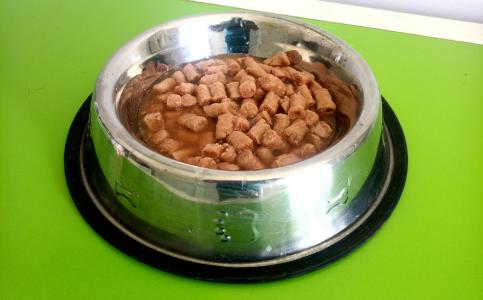5 Food components your dog needs immediately
By Kodichukwu Okonkwo, DVM
| August 3rd, 2020

As a living thing, your dog need basic minerals & nutrients on a daily basis to stay alive and healthy every day. These nutrients cannot be compromised cos it might reduce the general wellness of your canine pet. Most of the health issues of dogs emanate from the deficiency of some of these nutrients which stresses the importance of having them in your dog’s diet.
Protein
This might sound obvious because it’s an everyday food nutrient for dogs but it will surprise you to know that dogs still suffer from the deficiency of this nutrient. Protein comes in different forms. They are mostly found in living things. There are animal proteins and plant proteins that are available for consumption. These Proteins are built from amino acids which are the smaller components of proteins. Each protein type has its own unique arrangement of amino acids which helps to differentiate between them. Proteins are basically the building blocks of life and therefore very important if not more important than other nutrients. There are a lot of health issues that will emanate from the deficiency of proteins so its important to consider this protein first when feeding your dog. Most commercial pet food emphasizes the percentage of crude protein (CP) present in their products so you might want to look at that when buying your pet food. We recommend 20-25% CP for adult dogs and 27-32 % CP for puppies.
Calcium
This nutrient cannot be joked with because the basic structural frame of animals -the bone- is built from calcium and a deficiency of calcium can be very dangerous because it can lead to the deformation of your pet. Rickets is one of the diseases that can result from a deficiency of calcium where the legs of the pet might start to change shape from the normal to an abnormal shape. There are other body processes that need calcium to take place that when it is not available they try to mobilize from the bones through a process called demineralization thereby making the bones to lose strength and start to bend or deform. This is mostly prevalent in large-boned dogs like the mastiffs, St. Bernard, Caucasian Mountain dog, etc. It happens especially at the puppy stage when their growth and development is faster. Check the pet food you are about to purchase for calcium at about 1-2% of the food content.
Carbohydrates & fat
These nutrients provide the energy necessary for the whole body processes to function properly. Energy is needed to drive most of the chemical and mechanical functions of the body of your pet and a great deal of these nutrients are needed to provide this energy. Carbohydrate & fat are not utilized like that but are broken down into simple sugars (like glucose) in the body and passed through a process called the TCA cycle in the mitochondria (an energy-producing component of the body cells) where the energy is produced in form of ATP. Do not mind the technical medical terms. Some commercial pet food will not indicate the Carbohydrate percentage in the food but will emphasize the fat content which could be as much as 28-35%.
Omega-3
This nutrient comes in the form of oil extracted from fishes and it has been proven to be very beneficial to animals and humans. This nutrient helps the optimal function of the heart and blood circulation which means proper oxygenation of the whole body tissues hence promoting healthy living for your pet. The consumption of fish will also be a direct way to give your pet Omega-3. Given as supplement or acquired from food can work to help your pet get this nutrient. Excesses Omega-3 supplementation is not encouraged so try to keep it at a required level. Most dog foods that are commercially made have Omega-3 incorporated into them but you might need to check the contents to be sure.
Anti-oxidants
These nutrients are a major part of vitamin E and Selenium, they help to protect your pets body from free radicals that cause destruction of body tissues. These anti-oxidants try to mop these free radicals up from the body and protecting the body cells and tissues from the actions of these free radicals. These have also been incorporated into some dog food but checking the label of the pet food might help you confirm if they have actually been incorporated into the food.
1 Comments









Bravo
Leave a Reply